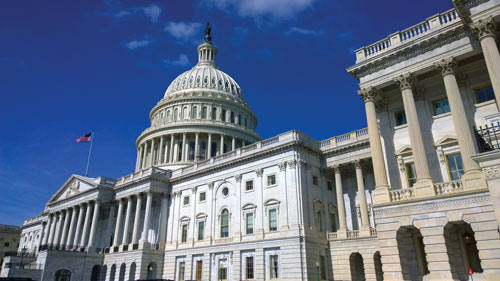Before code review, know which codes apply
 The Capitol of the United States in Washington, D.C. Congress passed the Americans with Disabilities Act in 1990. Some states, like Illinois, have augmented the ADA with their own regulations. (PxHere.com photo)
The Capitol of the United States in Washington, D.C. Congress passed the Americans with Disabilities Act in 1990. Some states, like Illinois, have augmented the ADA with their own regulations. (PxHere.com photo)
5 years, 3 months ago

By Tim Seibert, P.E.
President, Carl A. Nelson & Company
On our general contracting and construction manager projects, where we are not providing the design, we frequently encounter issues related to the determination of what are the applicable codes and regulations and how they apply for that project. That determination can depend on where the project is located, if and what type of public entity owns or provides financing for the project; licensing requirements for the operations contained in the facility; and the type of services provided in the facility. Carl A. Nelson & Company has a detailed process and procedures related to the legal research needed to make these determinations that we deploy on all our design-build projects that we also utilize where needed on design-assist projects.
The specific location of a project is very important in determining the applicable regulations. There are times when the applicable regulations could be totally different depending on which side of a street you are building on. Almost all states and cities and some counties have regulations related to building projects that will be applicable. In some states, the rules come from various state departments and some apply statewide and some apply only to specific projects. For instance, in Iowa, the fire code, a portion of the building code, electric code, energy code and accessibility code are administered statewide by the fire marshal’s office in the Department of Public Safety. The entire state building code only applies to buildings owned or financed by the state, where required by operating licensing or if the state building code is adopted by a local jurisdiction. In Iowa, the mechanical and plumbing code is administered statewide by the Department of Public Health.
In some jurisdictions there are two different set of rules adopted by different jurisdictions whereby the worst case of the rules needs to be considered to be able to satisfy all applicable requirements. In Illinois, the State Fire Marshal has adopted the NFPA 101 Life Safety Code statewide, while most cities have adopted the International Building Code which covers the same types of issues. Of course, in places of employment the federal, or in some locations, state OSHA rules applicable to buildings also apply.
The federal agency Centers for Medicare & Medicaid Services (CMS) requires facilities including hospitals, hospices, nursing facilities and ambulatory surgery centers participating in its programs to comply with the 2012 editions of the NFPA 101 Life Safety Code and NFPA 99 Health Care Facilities Code (HCFC). CMS partners with state agencies to implement their regulations. Many states, including the State of Iowa, have similar requirements to obtain a license for certain medical facilities.
The application of Americans with Disabilities Act (ADA) rules depend on whether the facility is a place of public accommodation such as restaurants, movie theaters, schools, daycare facilities, recreation facilities, and doctors’ offices or a commercial facility like privately owned, nonresidential facilities such as factories, warehouses, or office buildings. There is a common misconception that ADA rules do not apply to industrial facilities, which is incorrect. In addition to the federal ADA regulations, many states including Illinois have their own ADA-type rules that apply alongside the federal requirements.
In summary, it is very important to accurately determine the applicable building regulations early in the design process.
ABOUT THE AUTHOR
Tim Seibert, P.E., joined Carl A. Nelson & Company in 1994 as a project manager, advanced to vice president of construction and in 2007, was elevated to the position of president. He is a graduate of Iowa State University with a bachelor of science degree in construction engineering, holds a master’s degree in business administration from the University of Illinois-Champaign/Urbana, and is a licensed professional engineer in Iowa and Illinois. To learn more, call (319) 754-8415 or email canco@carlanelsonco.com.